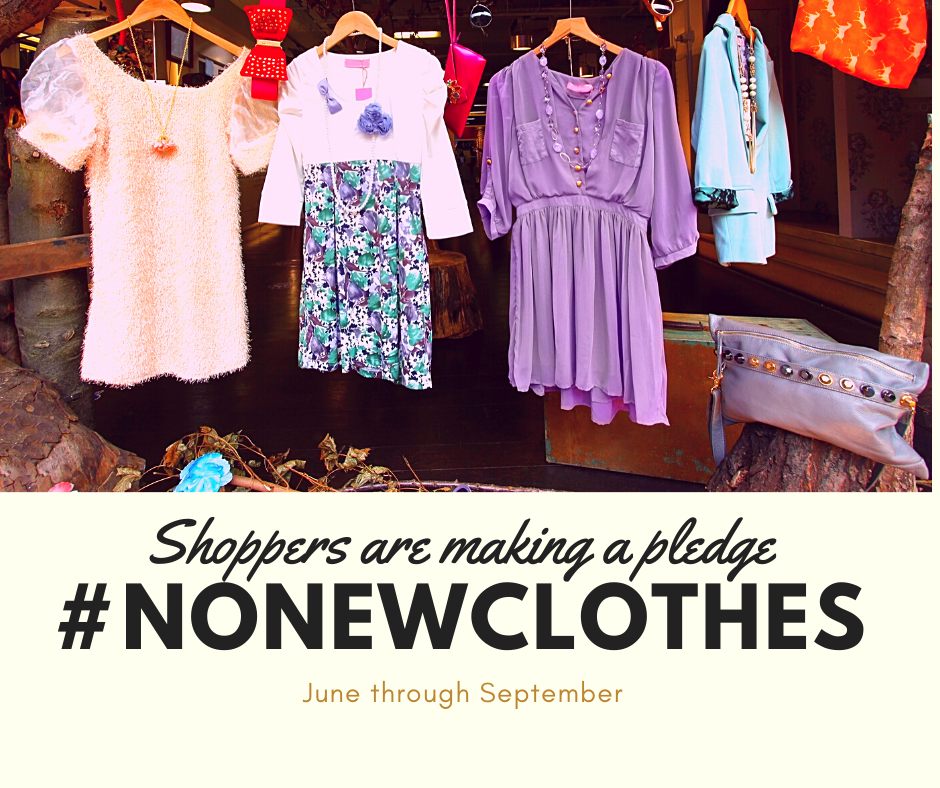
A hashtag has been going around for over a year now. It's often scattered through Generation Z's social media posts; the hashtag is #NoNewClothes. The three simple words are a pledge and a challenge tasking participants not to buy any new clothes for a three-month stretch from June to September. The hashtag got started during the early portion of the pandemic, in protest of major retail brands defaulting on payments for their orders. Since then, it has grown into something more.
Remake issued a pledge in May of 2020 in response to their #PayUp campaign—a demand that retail brands who canceled and postponed orders in mass quantities would essentially just pay up because millions of garment makers around the world were suffering without wages. In many cases, no wages mean no housing and no way to feed their families. With this public pressure, several companies did pay up. Nonetheless, according to Remake—others still refuse.
Now the hashtag has evolved to cover other significant matters like taking personal responsibility for purchasing habits. The hashtag challenges us, as consumers, to buy with businesses that support the ethical treatment of their workers. In addition, hashtag users question how much we need to buy new clothes and if we can challenge ourselves to be content shopping from our own closets. Doing so helps alleviate the demand for unsustainably made clothing while slowing the influx of textiles to landfills.
#NoNewClothes is a thrift store-friendly hashtag that champions recycling and buying at thrift stores and secondhand resellers. Both pastimes are already immensely common practice for Gen Z-ers. According to thredUp's 2020 Resale Report, the secondhand market is set to hit a benchmark of $64 billion by 2024. Selling secondhand clothes online is quickly turning into a path of entrepreneurial income for many. As for the younger generations, it also aligns with many of their values about climate change, sustainability, and protecting the environment.
The very real scenario that recycling, reselling, and sustainability are not just fleeting trends has retailers rethinking their models to survive. With challenges like the #NoNewClothes pledge, a new generation of buyers is having their say by dictating the direction of retail with an enormous financial impact.
Remake has issued the pledge again for 2021. Whether it is Generation Z, Millennials, Generation X, or Baby Boomers, the challenge is cause for pause to examine our individual retail habits a little closer.
